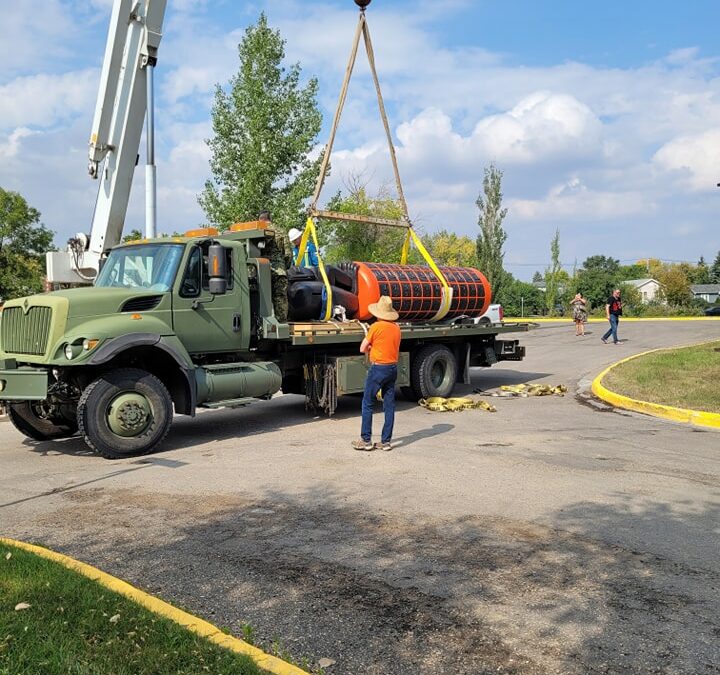WARNING: Disturbing content
The artist who created the Indian Residential School Memorial Monument is talking about it.
Stanley Hunt, a master carver from British Columbia, crafted the wood memorial, which is similar to a totem pole, to remember the children who did not return from residential school. Hunt told MBC Radio News he was motivated to create a memorial after news broke about unmarked graves at the former Kamloops Residential School. He explained creating the memorial was a lengthy process.
“The monument took just under eleven months to complete, that was because of all of those faces on the monument, their all carved with a hand chisel and a knife,” he said.
People who see the monument will notice that there is a raven on top of it with the faces of children carved in lower down. Hunt said the presences of the raven at the top of the memorial pole is expressing a powerful message.
“The raven, if you look closely it has a seed of life in its beak and when he’s standing above all those children, what he’s doing is calling those spirits to come home,” he said.
During the process of building the memorial a number of community members came to help Hunt complete it. People from the Canadian Coast Guard, RCMP and local school kids all chipped and helped paint the monument after the carving work had been finished.
Currently the monument is at RCMP F Division headquarters in Regina, where it is set to be displayed until early in October. After it finishes its stay in Regina the memorial is then set to travel east to its permanent home, the Canadian Museum of History in Gatineau Que just outside the nation’s capital.
The monument will be part of the museum’s section for residential schools. Hunt said when he was asked for his thoughts on how the monument should be displayed in the museum he found that he and the museum were in agreement about the best way to do so.
“They asked me what my vision was and I described a dimly lit hall, with black and white pictures of what happened to residential school children and that this monument would be standing in the center of the hall or at the end of the hall, lit up so that it would be the center piece of the hall and then they told me, I just described their residential school hall in the museum,” he said.
(Top Photo.The Indian Residential School Memorial Monument being unloaded in Regina. Photo courtesy of RCMP Heritage Centre Facebook Page.)
Support is available for those affected by their experience at Indian Residential Schools and in reading difficult stories related to residential school. The Indian Residential School Crisis Line offers emotional and referral services 24 hours a day at 1-866-925-4419.
